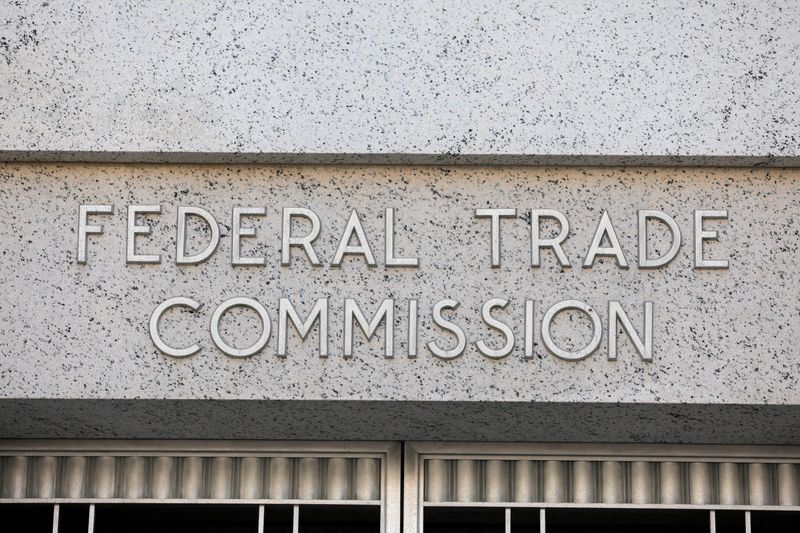WASHINGTON (Reuters) - The U.S. Federal Trade Commission, which enforces consumer protection rules, voted on Thursday to embark on regulations that would allow it to win back money from companies that are deceptive about the earnings that workers can make.
The FTC has previously gone after companies such as Uber Technologies (NYSE:UBER) Inc in 2017 and Amazon.com Inc (NASDAQ:AMZN) last year but has been prevented from tackling recent similar cases because of a Supreme Court ruling in April 2021 that said the agency had inappropriately used its rule-making powers to claw back ill-gotten gains.
The commission - made up of two Democrats and two Republicans - voted unanimously to begin the long process of creating a rule regarding companies that are deceptive about how much a consumer might earn from a gig job, from a multilevel marketing company, or a degree from a for-profit school, among others.
Republican Commissioner Noah Phillips noted in particular the proliferation of multi-level marketing companies during the coronavirus pandemic. "The problem does not show signs of waning any time soon," he said.
But Democrats on the commission failed to win needed Republican support for a study on pharmacy benefit managers, like CVS Caremark, which serve as intermediaries between drug manufacturers, health insurance plans and pharmacies to negotiate prescription drug prices. Other major companies are UnitedHealth Group Inc (NYSE:UNH)'s OptumRx and Cigna Corp (NYSE:CI)'s Express Scripts (NASDAQ:ESRX).
"I have to say I'm really disappointed by this outcome," Chair Lina Khan, a Democrat, said after the 2-2 vote. A tie vote means that the matter does not go forward.

Both Phillips and Christine Wilson, the other Republican, indicated a willingness to revisit the matter.
Independent pharmacists have complained bitterly about PBMs, saying they steer patients to their pharmacies or to mail-order, and offer reimbursements that are sometimes less than the cost of the drug to the independent pharmacist, among other concerns.